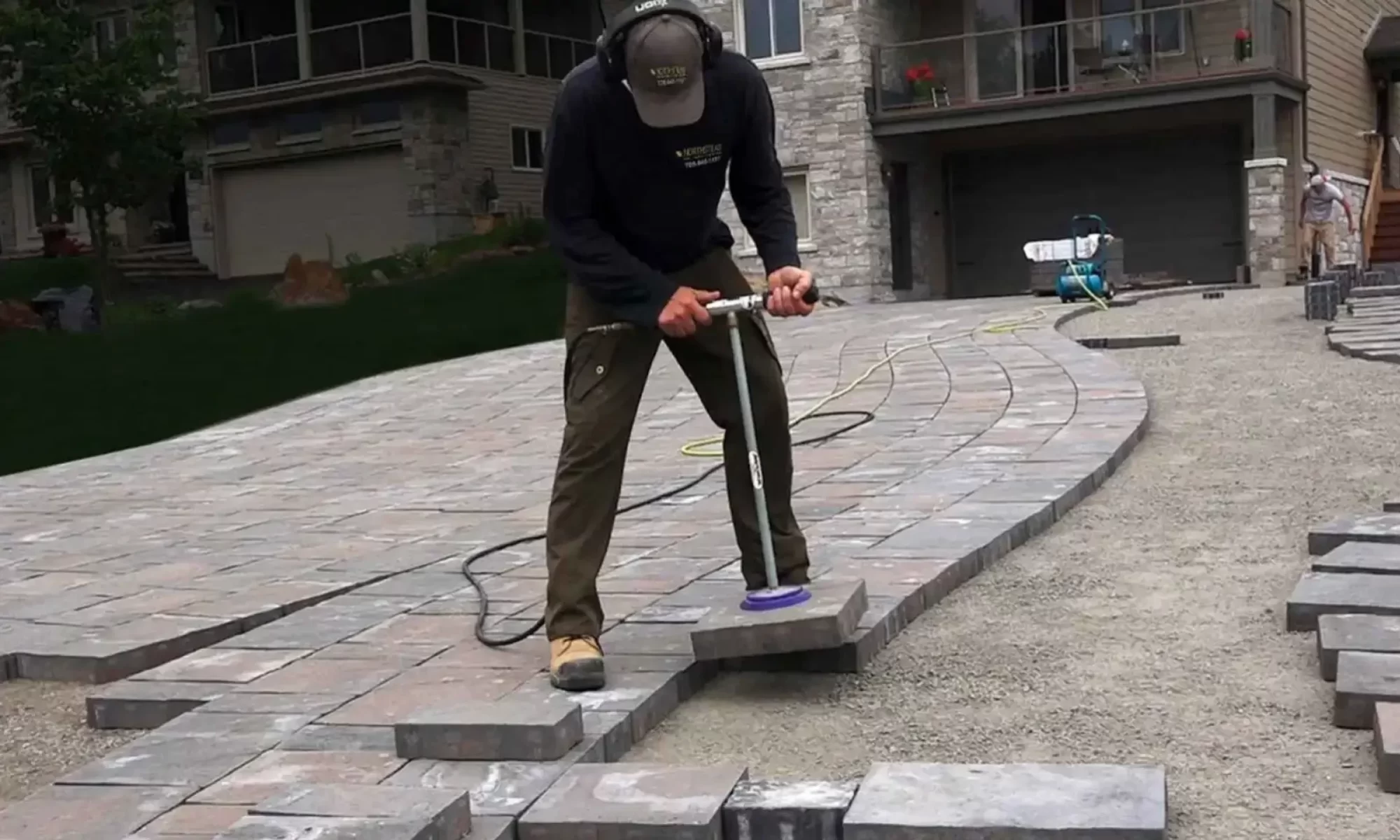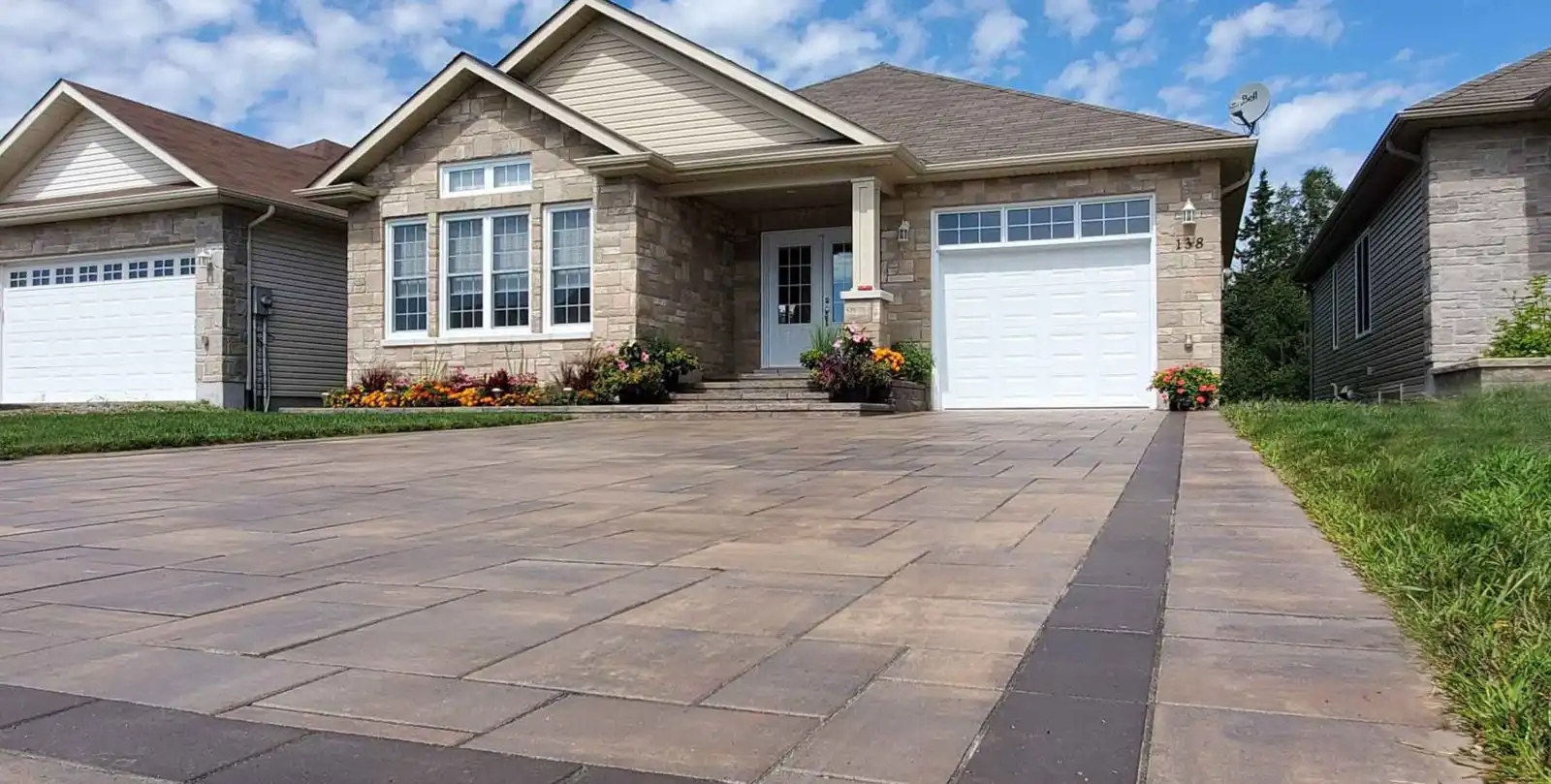Interlocking Driveway
Why should NorthStead build your Interlock driveway?
Base preparation is fundamental for a long-lasting interlock driveway, a process NorthStead excels in through our innovative custom screed system. Our method of grading the entire driveway as a whole using specialized screed poles, guarantees optimal slope for water runoff. This will also avert water pooling issues near your home.
Unlike outdated approaches by some local companies, like using a piece of lumber to grade in sections. This will lead to uneven slope over the totality of your interlocking driveway. Before selecting a contractor, inquire about their construction techniques and expected quality standards.
Use of proper aggragates in the sub-base equals longevity
Using the correct aggregate in your sub-base is crucial for supporting the weight of your vehicles and to ensure the best compaction. We use larger aggregate with 3″ chucks of stone verses our competitors 1/2″ stone. For the bedding layer just before laying bricks it’s important to know that more than an 1.25″ is too much. If a contractor uses more than 1.25″ of the finer bedding material you’re risking loss stablity in the brick leading to extreme tire ruts. We also use a 1/4″ inch chipped aggregate for our bedding material verses our competitors “stonedust”. The difference is simple stonedust holds water and water is what causes excessive rutting and premature paver deterioration.
Another mistake we see from other contractors is not extending the base far enough past the edge of the driveway. Not only is it important to be able to nail the paver edging along side the brick but, if the base is not extended far enough the interlock driveway bricks can sink latterally. This is usually caused when a vehicle drives off the edge of the driveway.
Stability using Geotextile Fabric and Understanding Joint Sand vs. Polymeric Sand
At NorthStead, we advocate for geotextile fabric in most driveways for enhanced stability and uniform weight distribution from vehicles. This fabric acts as a protective barrier between native soil and subbase aggregates, mitigating the risk of rutting or uneven settling.
Understanding the distinction between joint sand and polymeric sand is pivotal. While joint sand offers a cost advantage, it can erode in wet conditions. Although pricier, polymeric sand’s adhesive properties help prevent erosion, weeds, and insect intrusion. Contact us for comprehensive information on interlock driveway construction; we’re here to address all your queries.
Experience Matters: Choosing NorthStead for Local Expertise
When seeking a locally-built driveway backed by expertise, NorthStead Landscaping stands as the prime choice. Opting for NorthStead means steering clear of inexperienced contractors often found within larger companies. Our dedicated team’s experience and attention to detail guarantee a driveway that will exceed your expectations in terms of quality and longevity.

